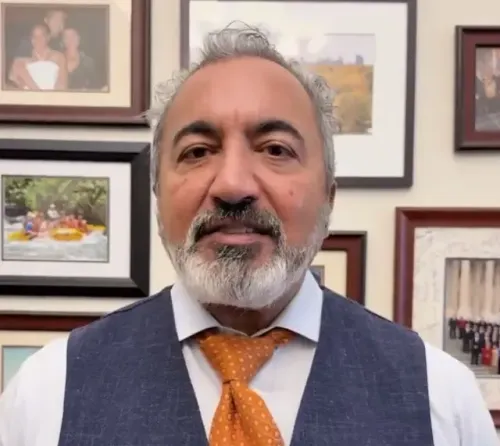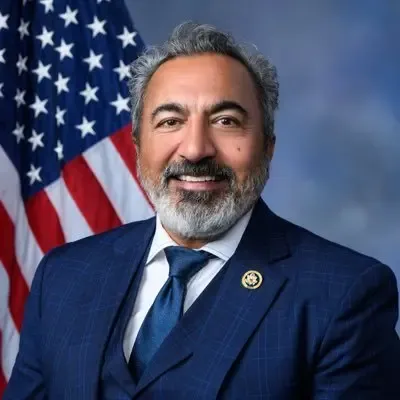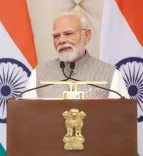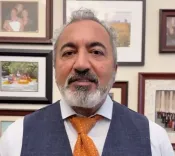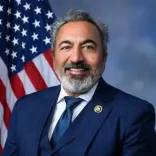What Is Driving the Taliban Influence on Bangladesh's Islamists?
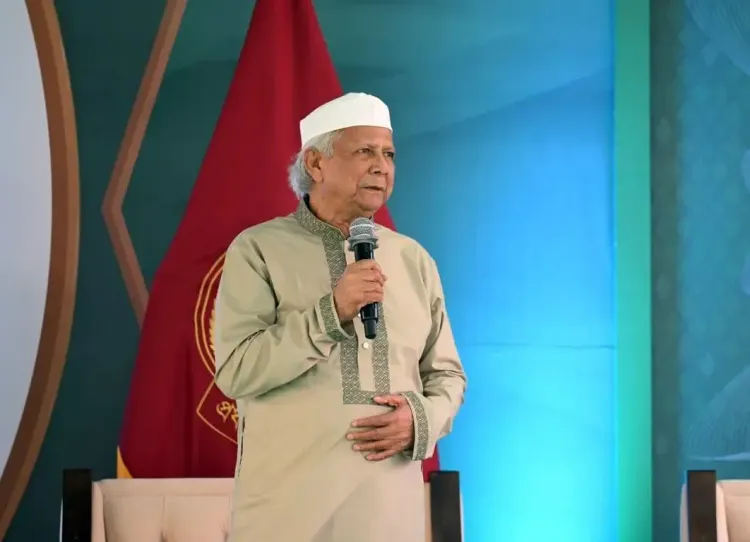
Synopsis
Key Takeaways
- Bangladesh's political landscape is influenced by a variety of ideologies, including nationalism and secularism.
- Islamist groups like Hefazat-e-Islam and Khelafat Majlis seek to reshape governance according to Islamic principles.
- The Taliban's influence poses challenges to Bangladesh's secular foundations.
- Engagement with radical elements may lead to increased tensions within the region.
- Understanding the complexities of Islamist movements is vital for promoting national stability.
Dhaka: In light of recent events shaping the political landscape of Bangladesh, the resurgence of Islamist movements has captured widespread interest. With a Muslim majority constituting approximately 90 percent of the population, this phenomenon might not be surprising. Yet, Bangladesh is distinct from the Middle East or Central Asia, where religion deeply intertwines with governance. While religion holds considerable sway, its role is more cultural and symbolic rather than overtly political. The political framework of Bangladesh is primarily guided by nationalism, socialism, secularism, and democracy, with cultural and ethnolinguistic identities prevailing over religious affiliations.
Islamists in Bangladesh advocate for a comprehensive transformation of the socio-political and legal framework grounded in Islamic tenets, opposing the current political establishment. However, the Islamist factions are not monolithic; they draw inspiration from various Islamic schools of thought, including Hanafi, Deobandi, Barelvi, Salafi, and Sufi, with Hanafi and Deobandi being the most politically influential. Following Bangladesh's independence, Islamists faced marginalization but found opportunities under military regimes. After the return to democracy in 1990, some formed formal political coalitions while engaging grassroots support through religious institutions and madrasas, while others resorted to militancy, launching terror attacks and reconfiguring into new factions in response to state crackdowns, particularly under the Awami League government.
The recent unofficial visit of seven Islamic scholars to Afghanistan, invited by the Taliban, warrants careful scrutiny. Framed as a mission to observe the human rights and women's rights situation, this meeting also had a political agenda aimed at reinforcing relations between Islamic scholars from both nations, fostering future diplomatic ties along with cooperation in trade, education, and healthcare.
After the Taliban's 2021 takeover of Afghanistan, the then-Bangladesh government opted for a cautious approach, refraining from recognizing the Taliban diplomatically. The government actively monitored the celebratory responses from Islamists on social media, who perceived the takeover as a 'victory for Islam.' Prior to the takeover, several Bangladeshi Islamist radicals were apprehended while attempting to join the Taliban by crossing into Afghanistan via India.
What draws Bangladesh's Islamist youth toward the Taliban? The country has witnessed the emergence of home-grown extremist groups since the 1980s and 1990s, notably Harkat-ul Jihad Al Islami Bangladesh (HuJIB) and Jamaat-ul-Mujahedeen Bangladesh (JMB), formed by fighters who had previously joined the Taliban during the Afghan jihad against the Soviet invasion. Upon returning to Bangladesh, these fighters aimed to actualize the Taliban's vision of establishing an Islamic state governed by Sharia jurisprudence. Reports indicate these groups maintain connections with transnational terrorist organizations such as al-Qaeda, al-Mujahideen, and Lashkar-e-Taiba (LeT). The early to mid-2000s experienced a surge in terrorist activities targeting NGOs and secular events deemed 'un-Islamic.' By 2007, stringent counterterrorism measures curtailed most extremist organizations, although a resurgence of attacks occurred between 2013 and 2016.
The seven scholars participating in the Taliban meeting included prominent figures like Khelafat Majlis chief Mamunul Haque and Hefazat-e-Islam leaders. Both groups, rooted in the Deobandi tradition, focus on Islamic scholarship independent of the state-controlled Alia system, advocating for a strict adherence to scriptural orthodoxy while opposing Barelvi practices and Western cultural influences. Their goal is to achieve complete Islamization of societal norms.
Founded in 1989, Khelafat Majlis arose during the anti-Ershad movement, aiming to establish a governance model based on the Quran and Sunnah. Targeting Islamic scholars, the party sought to unify them against the secular governance system, organizing protests against perceived blasphemous activities and advocating for political Islam. Although it has minimal electoral presence, its ideological alignment with the Taliban raises concerns about the threat it poses to Bangladesh's secular foundations.
In contrast, Hefazat-e-Islam operates as a coalition of over 25,000 Qawmi madrasas, emerging in 2010 in response to government policies perceived as threatening to Islamic values. The 2013 Shapla Chattar siege marked a significant moment for radical Islamists, showcasing urban mobilization efforts that directly challenged state authority. Protests such as the 2017 anti-statue movement and the anti-Modi demonstrations in 2021, which turned violent, further exemplify Hefazat's growing radicalization.
Following the July Uprising and the establishment of an interim government, both Hefazat and Khelafat Majlis regained influence, leading to the release of detained leaders as part of a reconciliation effort. However, these groups' activities have resulted in a series of attacks on cultural expressions, while a loosely organized group known as Towhidi Janata has disrupted events like Book Fairs and cultural festivals. While the Islamic scholars met the Taliban in Kabul, their counterparts back home organized rallies advocating for Sharia-based constitutional reforms and the exclusion of Ahmadiyyas from the Muslim community.
Although Khelafat and Hefazat are not classified as terrorist organizations, their extremist ideologies challenge Bangladesh's foundational principles. The meeting with the Taliban signifies their ambitions to align Bangladesh with the Taliban's vision, potentially paving the way for diplomatic normalization. A radicalized Bangladesh, under the guise of Islamism, presents a significant challenge to its South Asian neighbors, especially given the ideological connections with the Taliban and Pakistan. The Global South must remain vigilant regarding such seemingly innocuous meetings.

